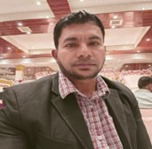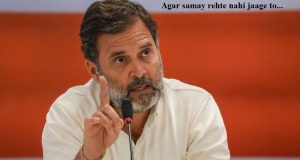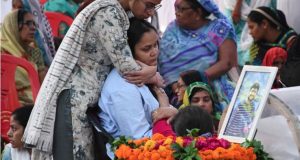Under the Shadow of Social Justice: The Political Exclusion of the Muslim Minority
Muslim community to stop polishing the mirror and start cleaning the face
By Dr. Jan Nisar Moin Telangana Freedom Fighter Zahirabad
During the recent cabinet expansion in Telangana, the inclusion of three new ministers was hailed by the Congress party as a step toward “social justice.
” However, this idea of justice appears hollow when the state’s second-largest demographic — the Muslim community — is completely excluded.
This marks the first time in the state’s history that no Muslim has been included in the cabinet, a decision that is not only astonishing but also contradicts the principles of democracy.
Muslims comprise 13–14% of Telangana’s population, and in some districts, their proportion exceeds 20%. Their total exclusion from cabinet representation cannot be seen as a mere coincidence.
It sends a clear message: despite slogans of political inclusion, Muslims are being kept away from the decision-making table.
This raises an important question: Have Muslims become so irrelevant that they are not even deemed worthy of a cabinet seat? Or is this exclusion simply another chapter in the cynical playbook of vote-bank politics?


This has not always been the case. During the Andhra Pradesh era, Congress governments regularly included Muslim ministers.
Personalities like Dr. A.B. Abdullah, Mohammed Ali Shabbir, and Fatima Rasheed played significant roles in key portfolios such as health, education, and minority welfare.
In 2004, Dr. Y.S. Rajasekhara Reddy inducted two Muslim ministers into his cabinet. Later, under the TRS government, Mohammed Mahmood Ali was made Deputy Chief Minister — a largely symbolic position, but it at least served as a gesture toward political balance.
In the current situation, the Congress slogan “Participation according to population” has proven to be nothing more than an electoral gimmick.
If this slogan had been implemented sincerely, at least one Muslim would have been included in the cabinet.
This issue is not solely about Muslim representation; it reflects a broader concern regarding democratic balance, inclusion, and the true essence of justice. Ignoring 13% of the population contradicts the very definition of social justice.
One of the main reasons for the political marginalization of Muslims is their limited role in real political decision-making.
While they actively participate in political events — rallies, processions, and on voting day — they are rarely included in key party committees, often denied electoral tickets, and are assigned only crowd-gathering responsibilities.
Unless Muslims take steps to build their own organizational structures, cultivate leadership, and assert their political worth, they will remain passive spectators in the political process.
This is not just a political deprivation but a threat to the broader fabric of social equity. Minorities cannot simply be acknowledged in policy documents; they must be empowered through participation in governance, heard in policymaking, and given a seat at the decision-making table. Without this, democratic values risk becoming hollow slogans.
The real tragedy today is that Muslims have forgotten to shape their own leadership. They continue to rely on others’ support and stand in the political shadows.
Instead, they must create their own platforms, step into political, intellectual, and organizational spaces, establish their own parties if necessary, field strong representatives, and strive not just to vote but to make policies.
As Ghalib says :
“Umar bhar Ghalib yehi bhool karta raha
Dhool chehre pe thi, aaina saaf karta raha”
“All my life, Ghalib kept making the same mistake:
The dust was on my face, but I kept cleaning the mirror.”
Now is the time for the Muslim community to stop polishing the mirror and start cleaning the face — to reshape their political identity. Otherwise, they will have to grow accustomed to watching the halls of power from the sidelines — as mere spectators.
Please follow and like us:
 Times Of Pedia Times of Pedia TOP News | Breaking news | Hot News | | Latest News | Current Affairs
Times Of Pedia Times of Pedia TOP News | Breaking news | Hot News | | Latest News | Current Affairs






